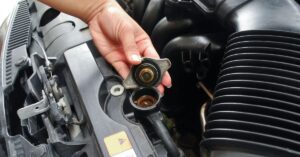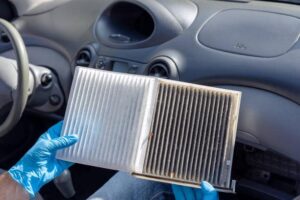If you want your vehicle to continue running smoothly and efficiently all year, maintaining it is essential. For vehicle maintenance purposes, each season presents its own unique obstacles. If you follow these recommendations for seasonal car maintenance, you can keep your car in good condition and avoid having to pay for expensive repairs.
Preparing for Winter:
Winter is a challenging season for cars. Cold weather can have a negative impact on fluid levels, tire pressure, and battery performance. If your battery is more than five years old, it should be replaced before winter arrives. Check it out before winter arrives. Also, check your tires to make sure they have enough tread depth to handle slippery roads. If you live in an area that experiences snow, you may want to consider switching to winter tires, as they provide excellent traction. To prevent engine fluids from freezing, you should also check whether the antifreeze combination you are using is sufficient.
Spring Revival:
After harsh winter conditions, it’s best to wait until spring to get your vehicle back on the road. The first step is to wash your vehicle thoroughly to eliminate salt buildup that can cause corrosion. Make sure all fluids are in good condition, including brake, power steering, transmission, and windshield washer fluids. An oil change and air filter replacement are also a must-do at this time to ensure your engine is running at peak efficiency. To prepare for spring showers, check the condition of your windshield wipers and replace them if they are worn out.
Get Ready for Summer:
Both the heat and the cold are difficult to deal with. When temperatures are high, your car’s cooling system can be affected. In preparation for summer, have your air conditioner inspected and repaired if necessary. To avoid common overheating problems, make sure the coolant level is full and the radiator is in good condition. Check your vehicle’s belts and hoses for signs of wear. To prevent flat tires from hitting hot roads, it is important to maintain the correct pressure on your tires.
Fall Analysis:
Autumn is a good time to prepare your car for the coming winter. To ensure that your heating system is working efficiently, you should have it inspected. As temperatures drop, battery performance may decrease. Therefore, it is important to check the battery and replace it if necessary. It is important to check the quality of your brakes to ensure they are in good condition, as wet and snowy winter roads can lead to longer braking distances. Changing the oil in your engine and checking the fluid level in your car are two things that can help you winterize your car.
Conclusion:
By following these seasonal maintenance guidelines, you can extend the life of your vehicle and improve its overall performance. Performing routine maintenance not only reduces the chance of expensive repairs, but also ensures that your vehicle is safe to drive in all weather conditions. It’s important to remember that vehicle maintenance is an ongoing activity that will benefit you all year round.
FAQs:
1. Why should you regularly check your vehicle’s oil level?
Regularly changing the oil in your vehicle is crucial because it lubricates the moving parts of the engine, reducing the friction and wear that occurs. Over time, motor oil becomes less effective and loses its effectiveness, which can cause damage to your engine.
2. How often should I check my tire pressure?
Before going on a long trip, check your tire pressure at least once a month. This is a smart idea. Properly inflated tires ensure that they function optimally, are economical, and are safe.
3. What are the signs that my car battery needs to be replaced?
A slow engine speed, problems with electrical components, and an illuminated battery warning light on your dashboard are all signs that the battery in your vehicle may need to be replaced. If the battery is more than three to five years old, it may be time to replace it.
4. How do I know if my brakes need to work?
If you hear squealing, screeching, or grinding sounds when you brake, or if you feel vibrations or pulsations in the brake pedal, these are signs that your brakes may need maintenance. A further indication that it’s time to check your brakes is if your car pulls to one side when you brake.
5. As the weather changes, should different tires be used in each season?
When driving in areas with severe winter weather, winter tires are recommended during the colder months as they provide better traction on ice and snow. In states with milder weather, all-season tires may be sufficient for year-round use.
6. What is the best way to maintain your car’s air conditioning system?
Maintaining the efficiency of your air conditioning system requires regular use, especially during the winter. If you notice that your unit is not cooling effectively or is making unusual noises during use, it may need to be repaired. This may include checking for leaks or increasing the amount of refrigerant used.
7. What maintenance needs to be done after traveling in harsh winters?
It is important to perform maintenance on your vehicle after the winter, including thoroughly washing the vehicle to remove salt and grit, checking the alignment and suspension, and inspecting the tires for uneven wear.




